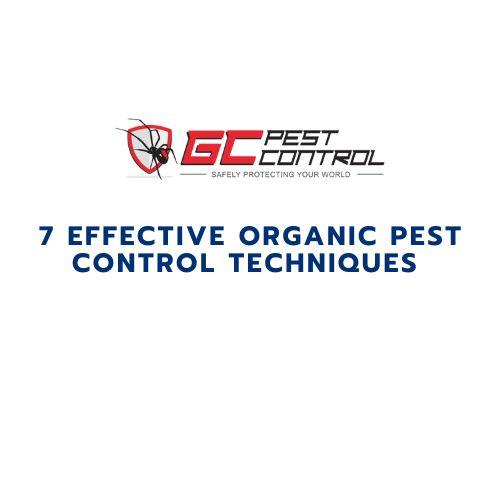
Even before they begin, many people stop up on organic pest control techniques. This is due to the fact that it can be difficult for those who grew up in the 1950s and 1960s to give up the notion that chemicals can make for a better existence.
Some people don’t think organic pest control techniques are effective enough for all types of crops and environments. It makes sense that there would be some mistrust when pests were consuming your main source of income. In organic farming, it’s more common to combine and contrast a variety of potential remedies to see which ones are effective. Although synthetic pesticides can be harmful to both people and the environment, they are more effective in getting rid of pests.
Organic gardening can be quite successful with proper planning. But it is not as beneficial when an unanticipated pest appears out of nowhere and begins devouring a valuable crop in a hurry. It ought to be the preferred way of pest control given the significance of maintaining the health of both people and the environment. Additionally, as more farmers and gardeners switch to organic farming, there will be more tested treatments for all kinds of pests and diseases.
Let’s examine a few effective organic insect control techniques:
Rototilling in the fall and spring
Rototilling everything under in the autumn and then doing it again shortly before planting in the spring can increase the success of organic gardening. Pests can overwinter under dead plants and in the soil, and leaving them on the ground over the winter might encourage disease. Any insects, such as slugs, that are attempting to hide in the soil will be exposed when the land is tilled in the spring.
Mulches can help you keep it clean
In addition to spreading disease and housing insect pests, plant debris can also do the same thing when it gets wet. One such mulch is newspaper. To keep the ground clean, stick with mulch comprised of wood chips or straw.
Use only certified seeds
The disease and insect resistance of certified seed is always higher than that of non-certified seed. You definitely don’t want to chance using uncertified seed for organic farming.
Implement vegetable netting
Covering the rows with mesh netting is one method of preventing pests of all types, including insects and deer, from getting near your plants. The best way to prevent birds from eating your berries is by doing this. Even though it is more expensive than other approaches, it is ultimately more effective. You may save the netting from year to year if you are careful.
Beneficial insects
One of the more recent trends in organic farming is the importation of insects that assist destroy other insects. There are even businesses that just cultivate insects to sell to farmers and gardeners. Online shopping is available for many of these. While these insects do no more harm than eradicate another bug, pesticides kill both good and harmful insects.
Carrots and tomatoes
To defend other plants, certain plants can emit a perfume or attract specific insects to them. The purpose of companion planting is exactly that. As with marigolds, petunias, and geraniums, carrots can benefit tomatoes. Mint, catnip, and basil are all beneficial for beets.
Organic room sprays
One way that organic farming techniques remove insects is by using everyday items to manufacture pesticides. Pests can be repelled by spraying a mixture of dishwashing detergent and water over a variety of plants. Additionally, you can include oil, hot spices, or peppers in the combination. Plants’ leaves can be sprayed to deter bugs from eating them.
There are numerous natural pest management strategies, and they are all less harmful to the environment than synthetic pesticides. Make a management strategy that is intended to get rid of pests in a number of natural ways if you want to succeed at organic gardening and protect plant, animal, and human life.





